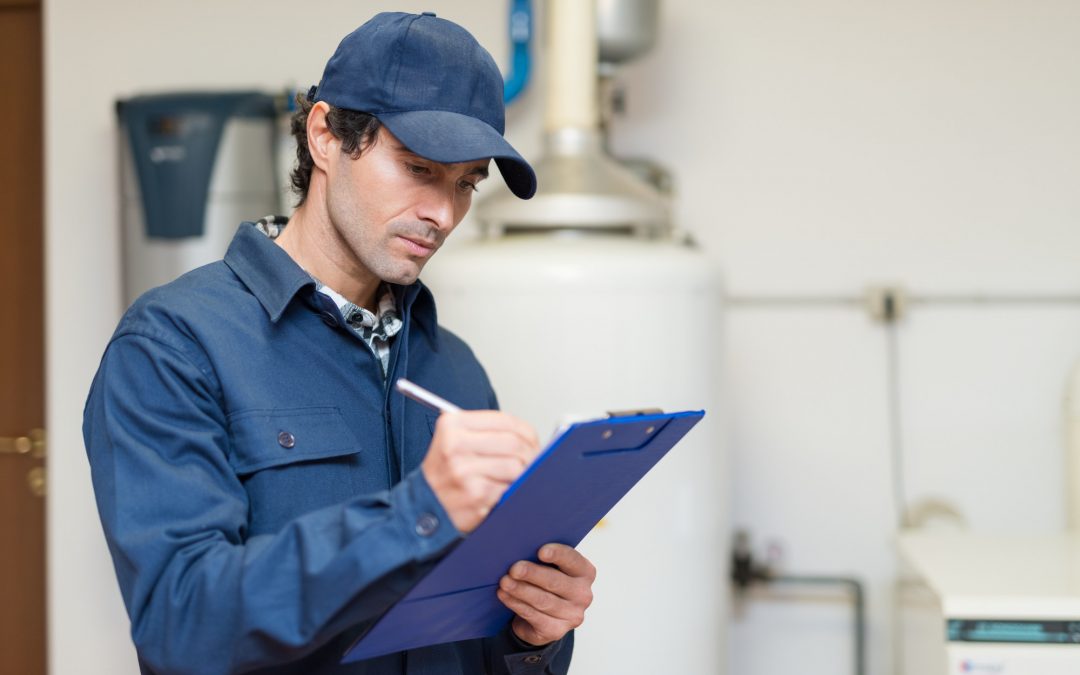If you’ve recently purchased a home or are getting close to closing on one, you’ve probably heard the term “home inspection”.
Some home buyers won’t close on the house without first hiring a home inspector to come in and view the property’s current condition.
However, if you haven’t been in touch with a home inspector before, you may not be aware of what they do. What role do they play in the closing of your home? What do they look for?
Here’s a detailed guide to your question of “What does a home inspector do?” and how they can help your home buying process.
1. Looking for Flaws
No home is in perfect condition when you purchase it. That’s not the point of a home inspector. Their job isn’t merely to find flaws, it’s to find flaws that could be a detriment to your livelihood.
Home inspectors are trained to keep a close eye for defects that the seller wouldn’t have disclosed to interested buyers.
They are also knowledgeable on certain city codes and regulations that certain features of the property should be compliant with. If not, they’ll inform you of it and list out what that means for your situation.
This part of the job is critical to providing safety for the regular, everyday home buyer.
Unless you have previous experience in-home features such as the flooring or HVAC system, you won’t know how to look for things such as water damage. With a professional home inspector by your side, you’ll be able to achieve peace of mind.
2. Arrange for Repairs
Even if you as the home buyer had an idea of what problems or defects are in certain features of the house, you wouldn’t know how to go about fixing them.
Fortunately, a home inspector will be the one to arrange for proper repairs to the flaws that they find.
They will communicate with all parties such as yourself, the seller, their agent, etc. to see to it that the correct repairs are being made.
Think of the home inspector as a neutral party for this part of the process. They want you as the home buyer to be in a safe, fully-operational home after closing. But they won’t try to burn a hole in the seller’s wallet to make the necessary repairs.
For that reason, your home inspector can be a great adversary for both sides and will help rid the tension in difficult conversations if any repairs are needed.
3. In-Depth Reports
The home inspector that you hire will look at the property, make several notes, and then come up with a detailed report of their findings.
This helps with reducing the amount of handyman jargon in the results to help you understand what the problem is, where it’s at, and how they propose to fix it.
The report will also help make the homebuyer aware of potential repairs in the near future. While things such as the HVAC system might be in passable standing, for now, a certain aspect of it might need to be repaired or replaced soon.
That gives you the advantage to save for future repairs, rather than being blindsided when your air conditioning stops working a year or so later.
The reports won’t just contain paragraphs of words in tiny font. They’ll also have graphs, photos, layout notes, etc. Anything to help you understand better will be in their report.
4. Knowledge of Many Home Components
There are some inspections that a home inspector will not perform, such as roofing inspection or foundation inspection. Those have specific experts to come in and perform.
However, home inspectors are used for all other aspects of your home such as the windows, doors, walls, HVAC system, structure, etc.
They will take a glance at every feature and make sure that everything is up to snuff.
5. Stand by Your Side
As previously mentioned, the home inspector that you hire can be a tremendous asset to handling otherwise awkward conversations between you and the seller.
However, their top priority will always be you (their client). You hired them for a reason, you want access to their knowledge and are trusting them to assess your future home’s condition.
Because of that, they will take every precaution to make sure their reports are detailed, accurate, and easy for you to understand.
For every problem, there’s a solution. Their job is to list all potential hazards and defects, as well as a way to fix or repair those flaws.
Home inspectors pride themselves on communication with their clients, so you’ll be aware of every step along the way.
Whether it’s knowing when they’ll finish their report, scheduling a day to do the inspection or an overall grade they’d give the property, you’ll always be in the loop.
They’ll pay special care to your situation in hopes that you refer them to other friends and family members you have that are in need of home inspection. If all goes well, you can help them out when they ask for referrals.
What Does a Home Inspector Do? Protect Your Future
What does a home inspector do? They help protect you from future setbacks to your finances and livelihood because of poor selling conditions.
Be sure to read this article on 9 things to ask during a home inspection. There you’ll find more information on the process as a whole.
For more inquiries, please feel free to schedule an inspection and we’ll be delighted to help you further.

